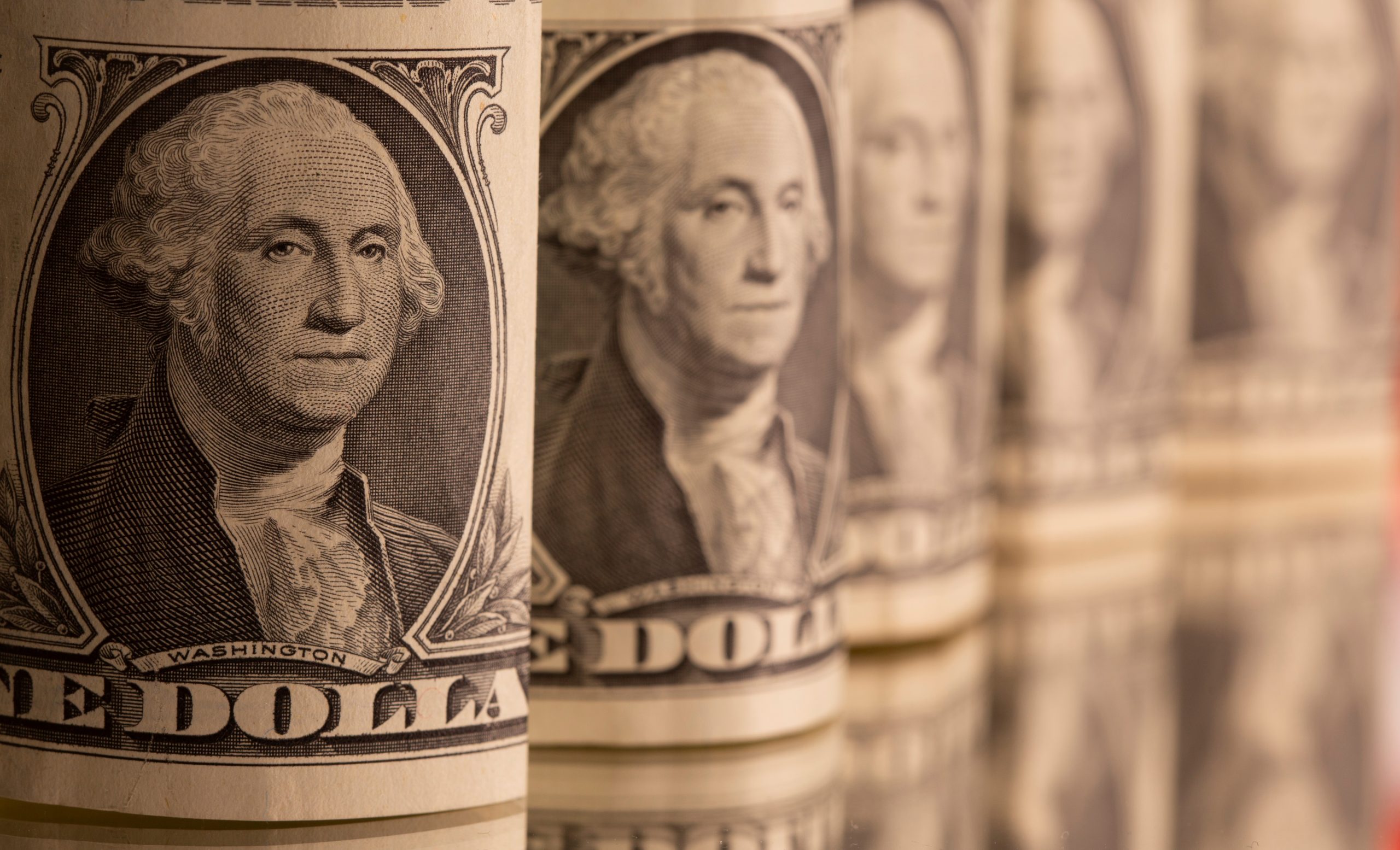The dollar was heading for a second week of declines on Friday as sentiment stayed tilted towards riskier assets, while an intervention by the Australian central bank put a halt to the Aussie dollar’s recent surge.
The dollar index was last at 93.733, little changed in Asian hours but off 0.24% on the week, as it continues its fall from a 12-month high of 94.565 hit in earlier this month.
It had managed to stem losses on Thursday, bouncing on better U.S. jobs and housing data, but the rally petered out on Friday morning in Asia, where risk sentiment was boosted news that beleaguered developer China Evergrande Group has supplied funds to pay interest on a U.S. dollar bond, averting a default.
But traders are still trying to assess whether the dollar has scope to fall further, or if this is a temporary blip on a march higher.
“People are wondering whether we are at an inflection point, as the dollar has been weakening and that doesn’t really fit with the broader narrative that global growth is cooling and the Fed is on the path to tapering, which should be supportive for the dollar,” said Paul Mackel, global head of FX research at HSBC.
On Friday, benchmark 10-year U.S. Treasury yields were at 1.6872%, slightly off from Thursday’s multi-month high of 1.7%, as markets continue to prepare themselves for an announcement by the Federal Reserve that it will start to wind down its massive bond buying programme, which is widely expected for November.
Mackel said part of the reason for the dollar’s weakness had been strong performances by currencies from most commodity exporting countries.
These were quieter on Friday, however, as traders took profits, analysts said, and energy prices softened.
Brent crude, which had risen above $86 dollars a barrel on Thursday, continued its tumble and was last at $84.10.
The Australian dollar was at $0.7475, off Thursday’s three-month top, as the boost to the China-exposed currency from Evergrande’s news was outweighed by action from the Reserve Bank of Australia to stem a bond sell off, as well as the pause in energy price rises.
The RBA said on Friday it had stepped in to defend its yield target for the first time in eight months, spending A$1 billion ($750 million) to dampen an aggressive bonds sell-off as traders have bet on inflation pulling forward rate hikes.
Also affected by energy prices, the Canadian dollar slipped to C$1.2352 per U.S. dollar, off Thursday’s C$1.2287, a level last seen in June.
The British pound paused for breath at $1.3798, off a month peak hit earlier in the week, to which it had been carried by growing expectations of an interest rate hike to combat rising inflationary pressures.
The euro was little changed at $1.1627, while the yen wobbled within sight of its multi-year lows, with one dollar worth 114.01 yen, compared with 114.69 earlier in the week, a four-year low.
China’s yuan eased against the dollar on Friday after the FX regulator warned of possible action if the currency market is hit by greater volatility following its recent rally. But the yuan still looked set for the biggest weekly gain since May.
Bitcoin was at $63,928, a little off Wednesday’s all-time high of $67,016
(Reporting by Alun John; Editing by Sam Holmes and Kim Coghill)
Related


































